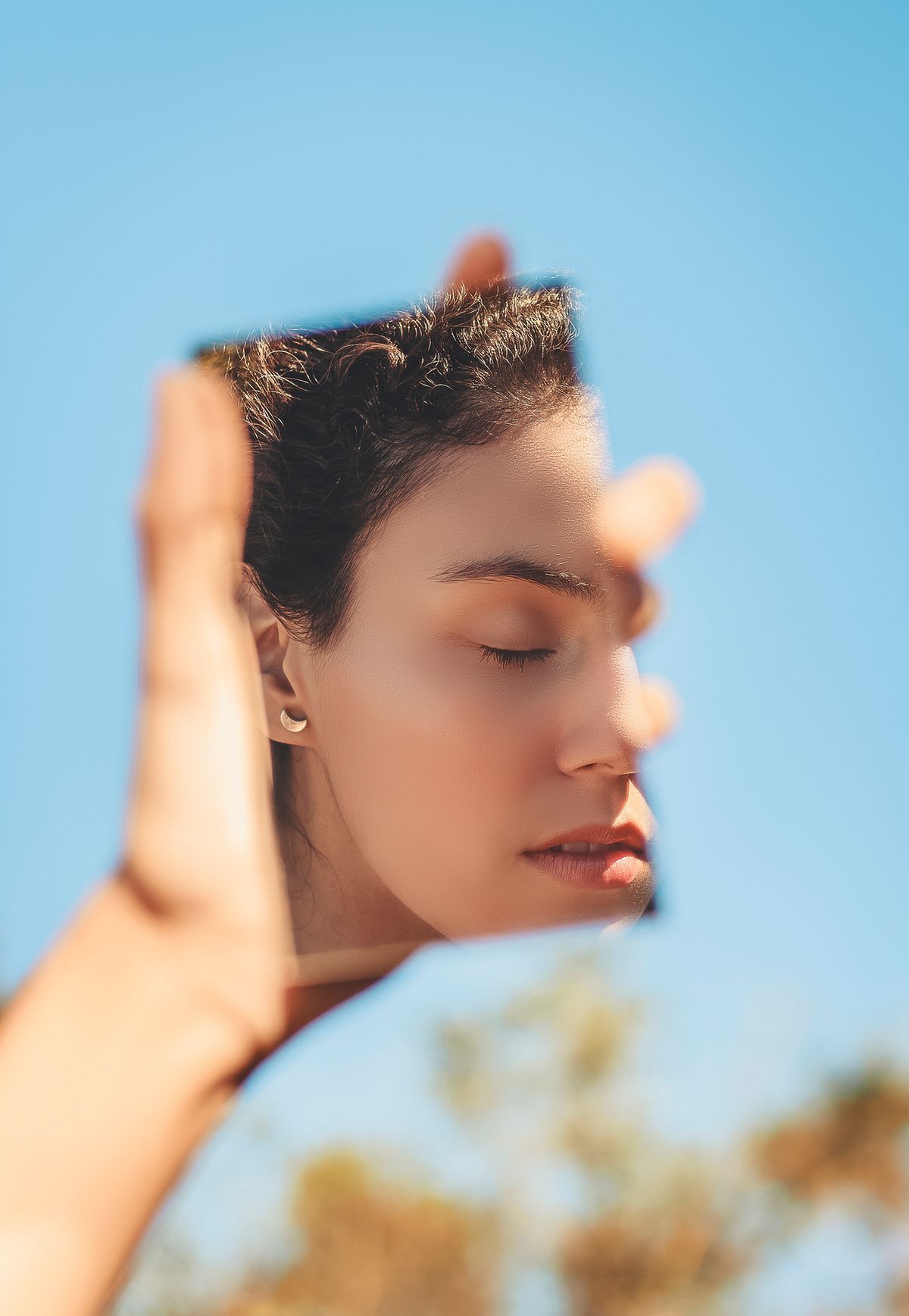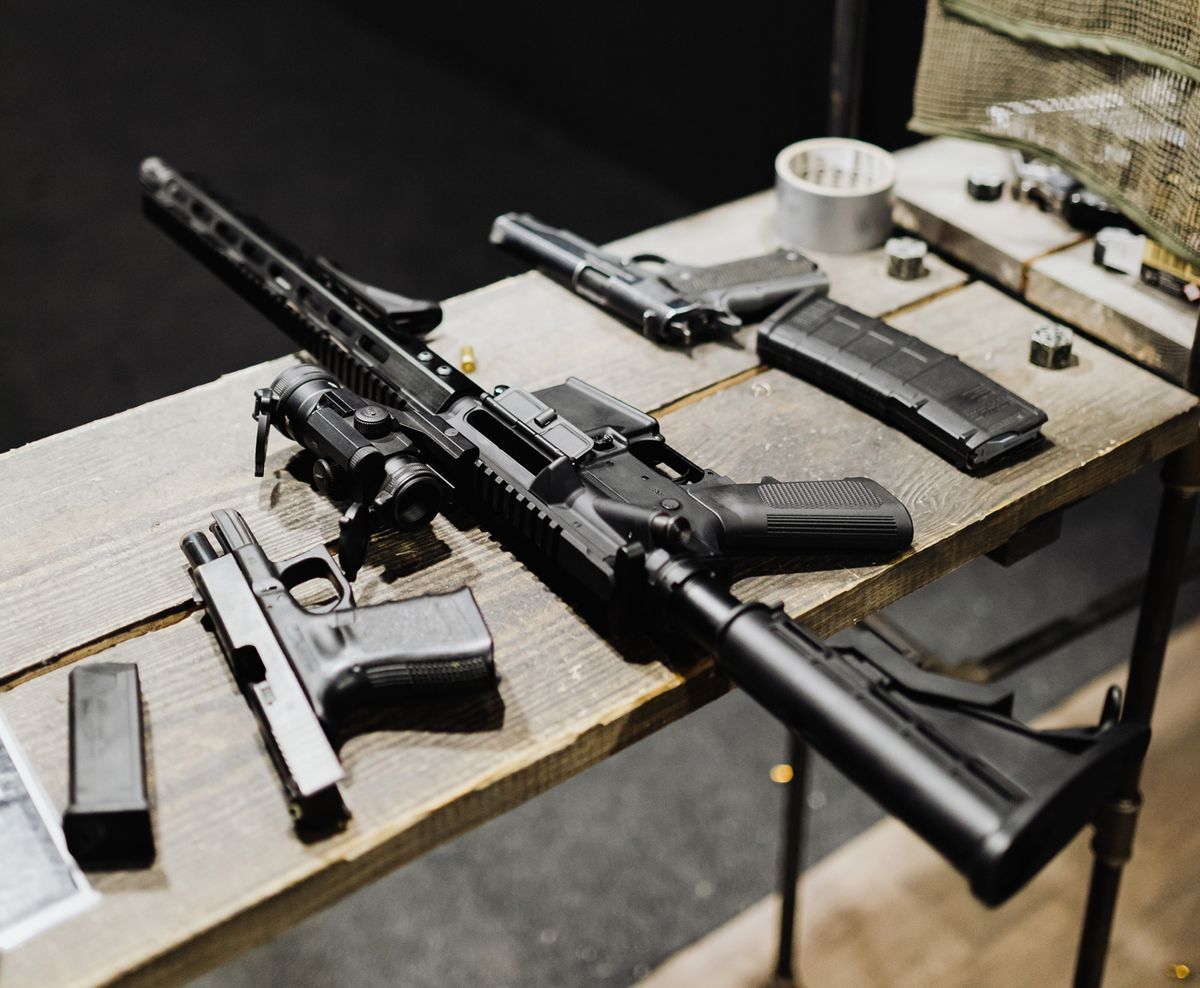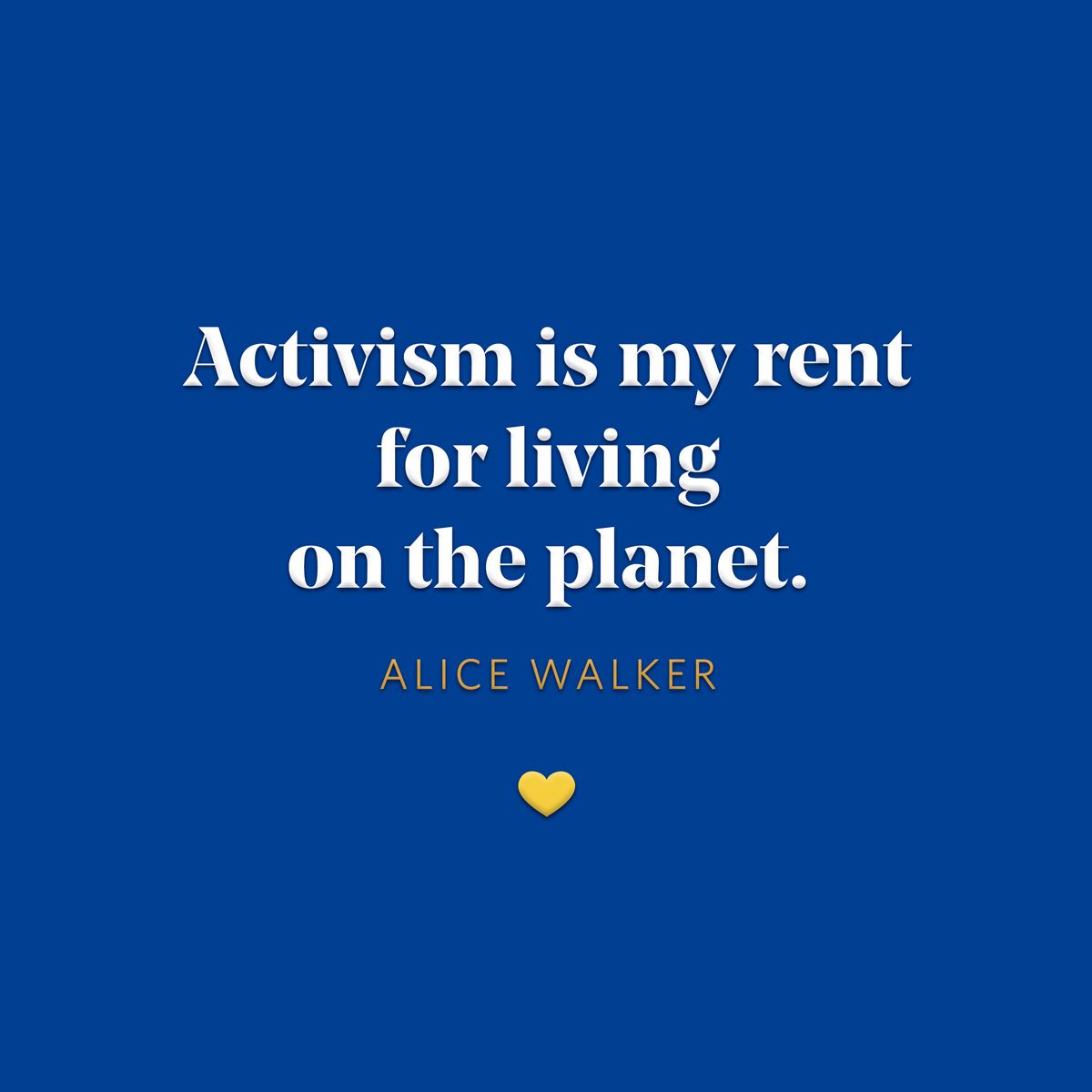|
OHF Weekly, Vol. 5 No. 15: Editor’s Letter, “Gun Violence in America, the NRA, and Racism,” “The Relevance of Politics,” and a quote by Alice Walker. Editor’s Letter💛 Hey Reader, (Please keep reading because it really—really—matters!) It’s been a hard few weeks since I last wrote here, y’all. Lots more shootings in America the beautiful, more bodies piling up, even as gun “rights” keep expanding (I guess when you’re dead you have no rights, so . . . ). More racial profiling. More laws against women. More laws against any acknowledgement of what we white folks have done—are doing—to Black people. If we don’t know it, it didn’t happen?! Then there’s all the stuff about Clarence Thomas that no one in charge seems to care about. Two Black legislators in Tennessee who were kicked out of the legislature for, well, being Black. (Their constituents had them reinstated and now the net result is that the whole world is discussing their brilliance.) A super-talented basketball star who won the NCAA women’s tournament only to have racist crap hurled at her by sportscasters and fans, for doing what every other male and female athlete does. And all of this is ignoring the big orange elephant in the room. I spent a few days in the hospital this week (I’m fine), and honestly it was a relief to escape life for a bit. But back to the topic at hand. I frequently comment about how most or all of us white folks are racist, myself included, and on rare occasion I hear other white people acknowledge it. But the vast majority of us feel hurt or insulted or believe it doesn’t apply to them (to be clear, I’m talking about the average white person—not those proud boys who own pointy white hoods or march around with tiki torches). I heard from one such woman a week or two back who was hurt and felt I exaggerated or couldn’t really mean “all.” I do—but even if you think I’m wrong, please indulge me and keep reading anyway. Actually, let’s step back a second and find even more common ground.
I imagine that lady is a very nice person in most ways and she was very polite, even as we went back and forth a couple times. While I certainly don’t hang around any white supremacists, I feel like most of the white people I know are very nice in most ways (dear Black readers, feel free to disagree—I totally understand if you do). We do our jobs, we work hard at parenting, we go to church, we obey the laws. Hell, we donate to causes, do volunteer work, and pick up our litter. We’re good people. Maybe not perfect, since nobody is, but we’re trying hard. Actually, let’s step back a second and find even more common ground. We can agree that every person alive has biases, yes? Let’s discuss . . . weight, a touchy subject with almost everyone. Full disclosure, I’m fairly average-sized now but it took years to lose forty pounds of “baby fat” (you mamas know what I mean!). I have all sorts of friends and family members for whom the weight struggle is real, even if they eat healthy and are super active. My sister eats her veggies and she has more energy than me, but she’s had a few extra pounds since childhood and now her thyroid is off. My bestie has fought it forever, and we run half marathons together. My daughters grew up slender athletes till they started on some meds. And when money is tight we all eat more carbs because they cost less. Most Americans have extra. Our jobs have become more sedentary, food is more processed, we have those babies, those meds and medical issues . . . And yet. Virtually all of us can attest to the wealth of biases around weight, even those who are thin. We’re too big. We’re too small. We’re insecure because of our size. We wonder if bigger people are just lazy. We blame ourselves for being too lazy. There are billion-dollar food, exercise, pharmaceutical, and surgical industries built around weight biases and our obsession with it (and yes, health reasons too). Biases frequently start with what we believe to be a trustworthy source, whether it’s our parents, best friend, school, and/or the media, and even when they’re disproven we have a hard time moving on from what we thought was true. So even though we know there are all these reasons for weight gain, we still look at plus-size job candidates with uncertainty, we question swimsuit choices, we encourage gym memberships. 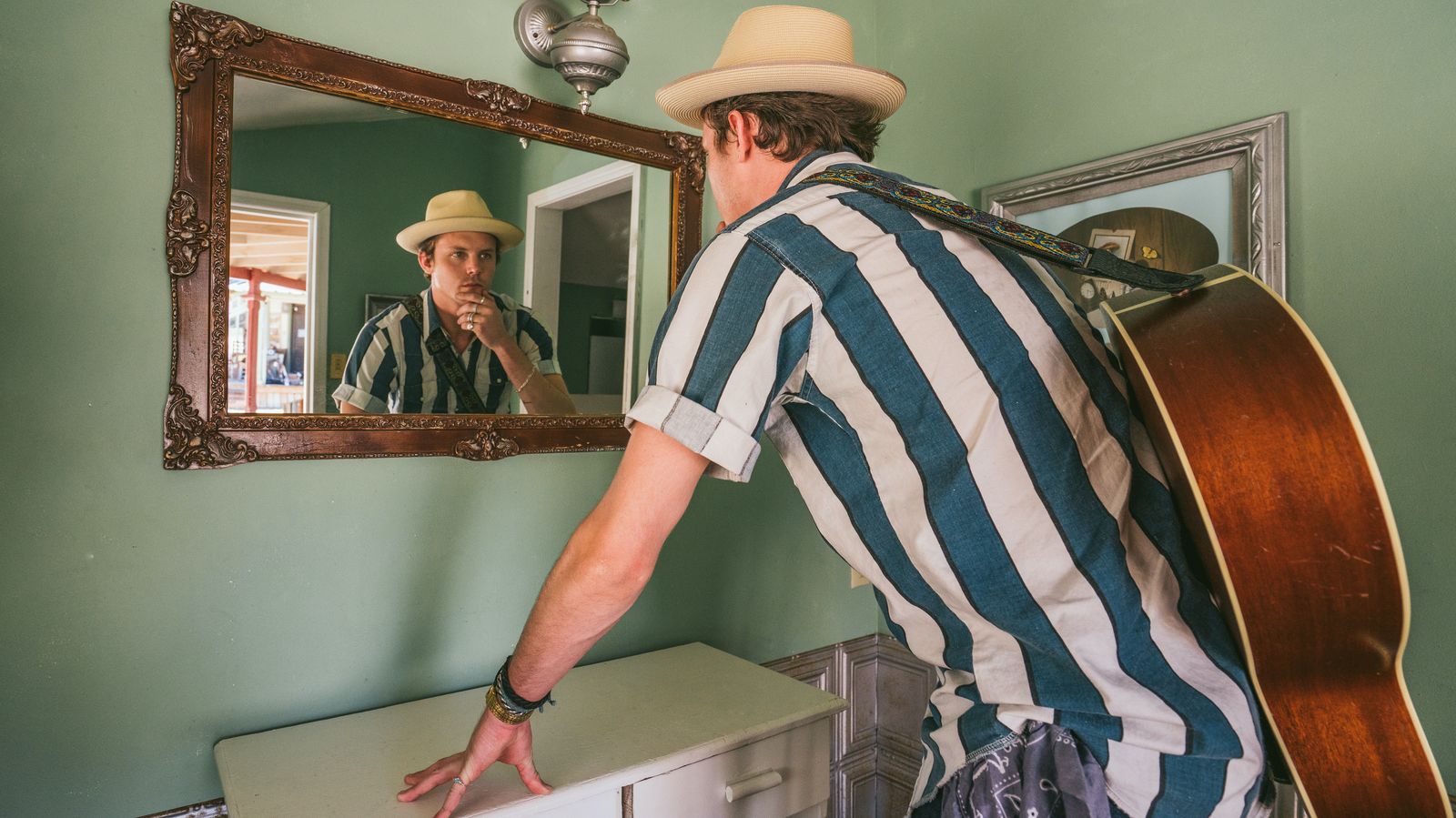 To sum up: We have many biases. We fear snakes and spiders and Dobermans . . . question liberals and conservatives and even the left-handed . . . have misgivings about urban or rural areas. They often start from that reliable source. We struggle to let them go even when we learn they’re wrong. A bias might not even be emotionally charged. I’ve had ten exchange kids from six different countries and it’s amazing the mundane things I thought were “true” that they see differently. And honestly, most of our biases are subconscious—we have no idea what makes us feel the way we do. Biases are human and we simply accept them as part of who we are. Except of course RACISM. White people—white Americans in particular—can’t stand to be called racist. Because here’s the thing: we know it’s bad. We were taught to believe it’s bad. There are laws against it. We’ve had anti-discrimination lessons at school and work. Most of us have nothing in common with those robe-wearing, torch-waving folks! It goes against everything we want to believe about ourselves. And yet . . . Racism is deeply engrained in every system in America, from housing to employment to the media and the judiciary, to name just a few, and most white folks have been taught that all these systems are perfectly fine and good. We don’t really understand systemic racism because we’ve never had to—it doesn’t affect us. When in doubt, we choose the police officer’s version over the suspect’s. We hear stats, but then we watch the news and it just doesn’t align. The vast majority of us don’t have Black friends or even coworkers who are comfortable enough to counter our “facts” with a dose of reality. So back to weight gain . . . there’s this iffy metabolism thing, there are dozens of “cures,” the news has new “insights” every other day that contradict the last ones . . . can you see how we end up racist without even trying? Here's just a short list of things I’ve heard many times from “good” white people who would be as appalled as the lady above to be called racist: - The Civil Rights Act was over fifty years ago; why can’t they (Black people) move on? Why do they have to see racism in everything?
- Why can’t they [Black people] solve the crime problems in their own neighborhoods?
- Can I touch your [Black] hair?
- This is a bad [Black] neighborhood; I’ll just lock my car doors.
- You’re very well spoken! [for a Black person]
- You’re not like other Black people.
- Slavery’s been over for hundreds of years; none of the Black people alive today were enslaved. Why should there be reparations?!
- I wanted to hire the [Black] candidate, but they wouldn’t have fit in as well.
- I’m sure the [Black] man walking toward me is fine, but I’ll just cross the street to be on the safe side.
- Why can’t [Black] people just do what the police ask, like the rest of us?
- I don’t see color.
As someone who’s been very focused on eradicating racism for the past few decades, I don’t say these things—but they still pop into my head on occasion. Am I a fraud? No, I’m a human living in a racist culture. Just as you are. This is not a “Black problem.”
Bottom line, we can’t escape these thoughts and that’s okay; what’s not okay is ignoring or denying that they’re there, because we can’t improve on what we don’t acknowledge. What we can and need to do is learn from our biases and recognize them for what they are—gross over-generalizations (or sometimes out-and-out lies) handed down generation by generation by generation for four-hundred years till they were viewed as “truth.” Learn to question what our white friends and family tell us about race, even when it sounds like gospel. Learn to listen to our Black friends, even when it seems exaggerated or downright wrong, because this is their lived reality. And then we use that new-found understanding to treat people better . . . to be more supportive and empathetic . . . to help others recognize their own biases…to vote in ways that are best for all our countrymen and not just those who look like us . . . to remove the ugly stain that’s been keeping America from being truly great. Some of you might be thinking to yourself, “I don’t actually have any Black friends and family, or even neighbors or coworkers. Why does it matter?” It matters a lot. Whether your ancestors were good people or misguided or not even here yet, our country will eventually implode if we don’t address our history. We can’t make good decisions based on falsehoods, or become the best versions of ourselves. This is not a “Black problem.” White people created race and racism, we (collectively) got rich off it, we’ve perpetuated it, and we continue to benefit from it. It is our problem to solve. And more than that, we’re the only group with the power and the numbers to solve it. So let’s stop worrying about how bad it looks to be called a racist, and start worrying about how we can eradicate it. Love one another. Sherry Kappel
OHF Weekly Managing Editor
FROM OUR WRITERSGun Violence in America, the NRA, and RacismHow did we reach this point where mass shootings have become commonplace? Those of us who are older remember a time long before Columbine, when school shootings were simply unheard of. What changed? As with so many of our nation’s shortcomings, it begins with racism.By Glenn Rocess In any other first-world nation, a mass shooting is national—and often international—news. In America, it’s a Tuesday. No other developed nation allows such easy access to firearms of almost any type, and no other nation’s schools require “active shooter” drills for its children. There are Americans who move overseas to protect their children from gun violence at school; I know this firsthand because my wife and I sent our youngest son to school overseas less than a month after he told us he knew other kids who were bringing guns to school. He has since told us this was the best thing we ever did for him. How did we reach this point where mass shootings have become commonplace? Those of us who are older remember a time long before Columbine, when school shootings were simply unheard of. What changed? As with so many of our nation’s shortcomings, it begins with racism. Here’s a question: Do you know of an organization that opposes gun control laws, supports the right to openly carry arms, spreads the alarm about the government keeping its people “disarmed and powerless,” and even requires its members to be trained in how to use and clean firearms? How would today’s gun-rights supporters answer such a question? It’s probably safe to assume that they’d say, “The National Rifle Association, of course!” But a little over fifty years ago, the right answer would have been “The Black Panthers.” At the time, the National Rifle Association (NRA) strongly supported gun-control laws. In fact, during the 1930s: The NRA assisted Roosevelt in drafting the 1934 National Firearms Act and the 1938 Gun Control Act, the first federal gun control laws. These laws placed heavy taxes and regulation requirements on firearms that were associated with crime, such as machine guns, sawed-off shotguns and silencers. Gun sellers and owners were required to register with the federal government and felons were banned from owning weapons.
Then came the Civil Rights Struggle of the 1960s. Black Americans had endured nearly a century of Jim Crow laws after the end of enslavement, but even with the legal victories of Brown v. Board of Education and the 1964 Civil Rights Act, racism was rampant in every walk of life, more so even than today. The Black Panthers were at the forefront of the fight, and went so far as to occupy the California State Capitol building, openly carrying arms as they did so. The occupation—as opposed to the violent insurrection on January 6, 2021, at our nation’s Capitol—was completely peaceful and resulted in no injuries. Read the full article at OHF Weekly.
The Relevance of PoliticsBy Michael Greiner 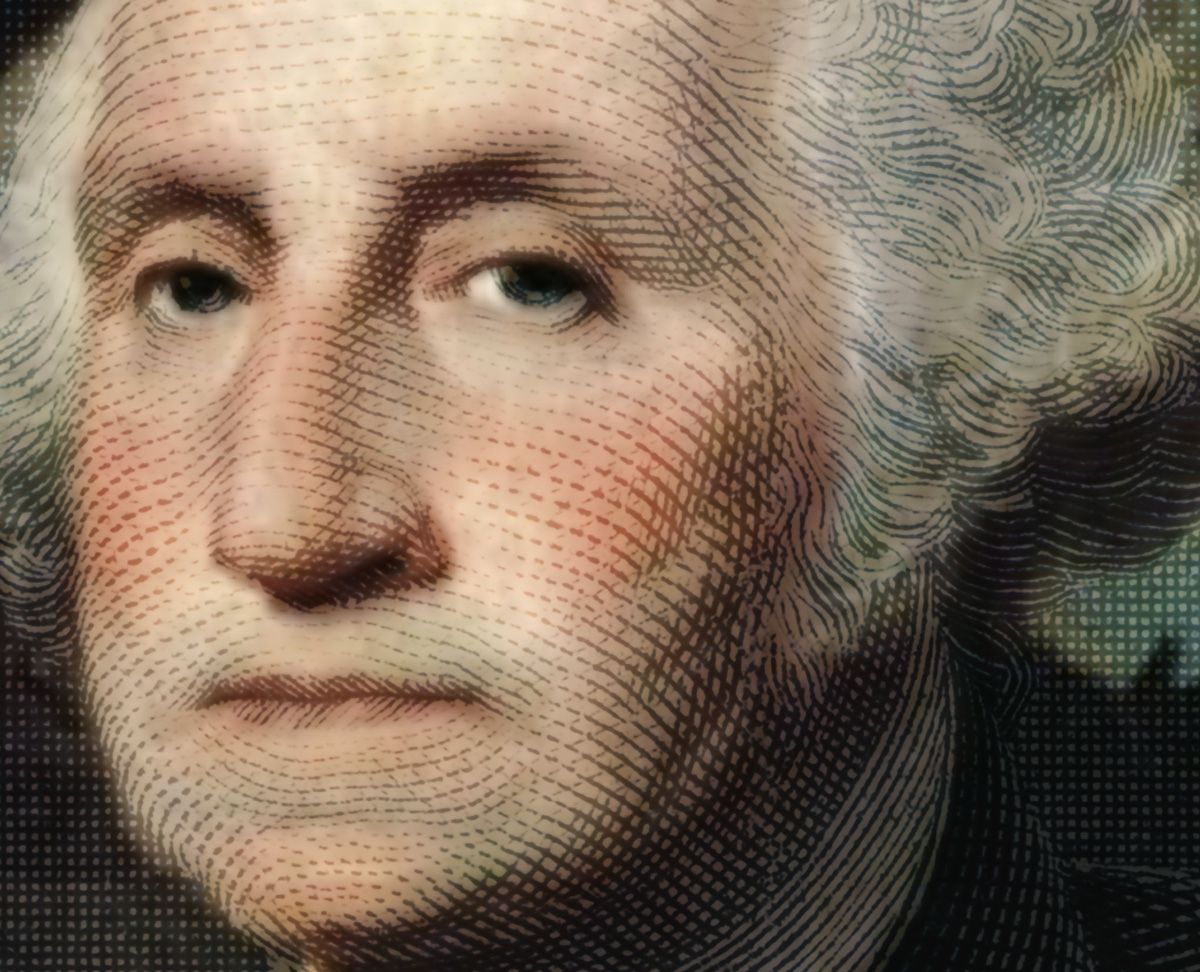 George Washington, colorization by Clay Rivers. A saying maintains that there are two things one should never discuss in polite company: religion and politics. It’s true. Americans traditionally hate politics. We like to live in a world where we get along with each other, one in which we can enjoy picnics and softball together, without regard for our political bent or religious beliefs. Or at least that’s how it used to be. Lately, politics has devolved into a blood sport, with supporters vehemently defending their own side, right or wrong. We know this doesn’t feel right, but we just can’t stop ourselves. Is it possible that there is something bigger at play here? Is it possible that our current political crisis is about something more than just who’s winning and who’s losing? Government is the ultimate expression of the social contract that governs our society. The theory of the social contract comes from the Enlightenment of the late eighteenth and early nineteenth centuries. Based upon the arguments of Jean-Jacques Rousseau and Thomas Hobbes, the idea emerged to answer the question of “what makes a government legitimate?” The philosophers of that era were no longer willing to accept the justification of rulers who came before, in effect that God granted certain people the right to rule over the rest of us. Instead, they needed a new understanding of government. In its place, the Enlightenment philosophers proposed the idea that people would consent to their government. In effect, society would collectively enter into a contract in which its members agreed to be governed according to certain principles. Why would society agree to this? According to the philosophers, because it would deliver safety, security, stability, and prosperity to all. Without some organizing principle, society would devolve into violence and chaos, something that nobody wants. So, to avoid this result, we would agree to cede certain of our rights to a common enterprise, a government, that would enforce the rules society agreed upon against the few who refused to cooperate. This theory requires the acceptance of a few assumptions to work. First, it requires that most people are willing to accept the legitimacy of their government institutions. If even a substantial minority of society does not recognize their authority, then the state will be unable to compel those people to accept the rules we have established. Second, it requires that the rich and powerful have a stake in society. If the people who have power believe they are better off with our Constitutional order than without it, they will support it. If not, they will have the power to undermine its existence. Read the full article at OHF Weekly.
Final Thoughts
|
